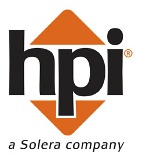It’s that time of year when the majority of Brits are making their big summer getaway, and automotive data expertHPI is advising holidaymakers who are planning on driving abroad to keep their eyes on the road ahead.
So whether it’s boarding Eurotunnel to soak up French culture, catching the Ferry to a European port or planning a road trip USA style, preparation is everything and will make for a smooth road and a memorable driving holiday.
The number of drivers from the UK involved in accidents has risen 160% in five years in Europe* alone, and these are often avoidable just by understanding the correct driving regulations on that country’s roads. Almost half (46%) of all accidents involving UK drivers abroad took place in France over the last decade.
If you are renting a car or driving your own vehicle abroad, it’s essential the necessary documentation be taken. Motorists can be stopped and asked for documents at any time, and failure to produce the correct ones could result in a fine or being prevented from continuing with the journey.
This is what is required by all drivers on roads overseas:
- A valid driving licence (not provisional)
- The paper part of your driving licence is no longer needed, though a pre-1998 paper license is still valid.
- The original copy of your vehicle’s registration document (V5C)
- Motor insurance certificate (inform your insurer when you’re going abroad to ensure you are covered)
- Proof of European cover on your warranty policy
Every country has its own set of driving rules and regulations, and pleading ignorance won’t wash with foreign authorities if caught breaking their laws! England and Wales have one of the highest drink-driving limits at 80mg of alcohol per 100mg of blood. However, most of Europe is 50 or less. If driving, the best and safest way to ensure staying on the right side of the law is to steer clear of alcohol completely.
Check before leaving home for unexpected necessities and items to take on the journey. Research and planning could save the unnecessary hassle. Driving in France is illegal without a high-vis vest and a warning triangle in the boot and not having these could result in a hefty fine. First aid kits, fire extinguishers, headlamp beam reflectors and spare lamp bulbs are also compulsory in some areas of Europe so always do your homework.
Toll roads are commonplace throughout many European countries and often catch tourists out in popular destinations such as France and Italy. Just by simply ensuring plenty of change in the correct currency to cover toll costs will ensure safe passage. Urban road tolls like the London congestion charge are also now present in 14 European countries so effective route planning can be vital if wanting to avoid forking out additional costs.
Austria, Bulgaria, Czech Republic, Hungary, Romania, Slovakia, Slovenia and Switzerland also require a vignette (a form of road tax) sticker to drive on motorways. Costs vary depending on the country, but these can be bought from petrol stations.
Driving skills and maximum awareness are also critical to driving on most European roads as they drive on the right-hand side of the road meaning negotiating roundabouts in the opposite direction which can take some getting used to, especially on a first visit. If in the Irish Republic, Cyprus or Malta, as in the UK these countries drive on the left-hand side of the road.
Fernando Garcia, consumer director at HPI, commented: “Driving abroad can be a fantastic way to explore a country as it means you can go anywhere and check the place out. However, but to get the most out of the trip and enjoy the experience, it’s essential to stay safe and understand the rules of the road in every location you visit. There’s absolutely nothing wrong with driving in the slow lane until you feel ready to move into one of the faster lanes on a motorway. Building up road confidence abroad is very important especially for drivers with little or no experience of overseas motoring.
“Doing some simple homework beforehand and getting to grips with what is needed and how things may differ will help to build confidence and make sure drivers are fully prepared for the journey in every way possible.â€








